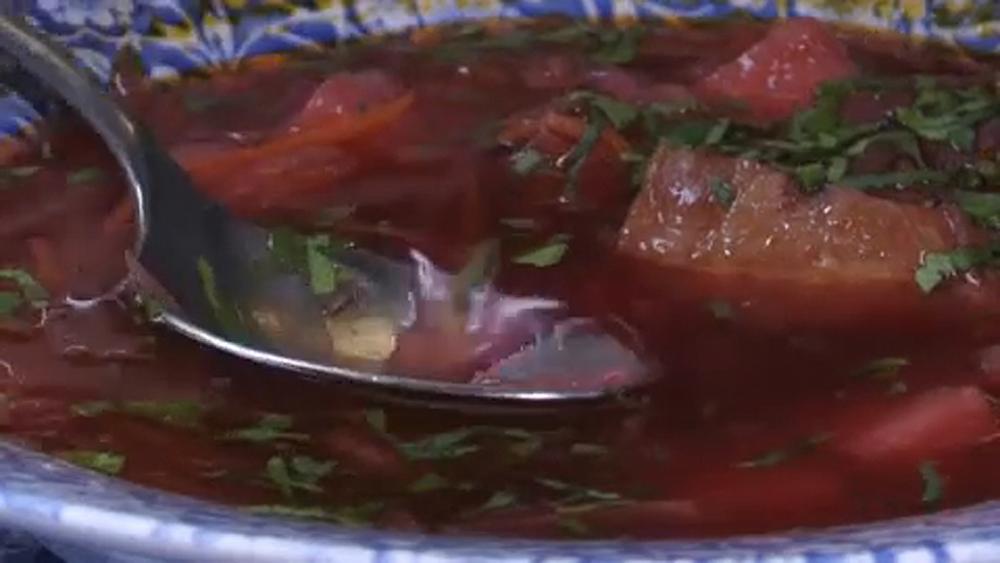
“Borscht” a traditional beetroot and cabbage soup is causing controversy in Eastern Europe.
Its name is, in many places, synonymous with Russian soup, but a Ukrainian chef is fighting to get it recognised as part of his country’s cultural heritage.
“In many shops in Turkey, Slovenia, America, you can find canned borscht where it says ‘Russian soup’,” says Levgen Klopotenko who has a renowned Ukrainian restaurant in central Kyiv.
“If we go to a restaurant abroad and there is “borscht” on the menu, the translation is ‘Russian soup’. It’s just unbelievable!”
“We will register something bigger. We will register the culture of borscht in Ukraine, and the tradition to cook it. We cook it so often, that it has become a part of the culture.”
Last month he brought a pot of borscht to Ukraine’s culture ministry to convince officials to submit an application to United Nations cultural body UNESCO to list borscht as an intangible part of the country’s cultural heritage.
The list already includes French gastronomy, Neapolitan pizza and Georgian wine.
The ministry agreed and said it was preparing the application to UNESCO before the March deadline, so it can be examined in December next year.
And suddenly Moscow bristled. On Twitter, Moscow’s embassy in the US said it was the national food of many countries, each with its own recipe.
The Russian government soon followed on its own Twitter account, calling borscht “one of Russia’s most famous and beloved dishes and a symbol of traditional cuisine”.
“When I started studying Ukrainian food and cuisine, I realised that Ukrainian cuisine does not exist in Ukraine. It’s all Soviet,” Klopotenko said.
But for him, the beetroot and cabbage soup is quintessentially Ukrainian: “I realised that borscht is what unites us,” he said.
“We may be different, we eat different types of borscht cooked to different recipes, but it’s borscht.”
It’s a dispute that’s been simmering for centuries.
Ukrainian historians say it was first mentioned in 1548 in the diary of a European traveller who tasted the soup in a market near Kyiv. They say it arrived in Russia much later with Ukrainian settlers.
Olena Shcherban, a Ukrainian ethnologist and historian, said it is “absurd” to associate borscht with Russia.
“I always say that it’s a dish that I ate almost immediately after my mother’s milk. This is the first dish. This is a dish that I eat every day, which I cook for my children and my family.”
The 40-year-old says that Ukrainians do not know their history well and have a “lack of pride” in their gastronomy, unlike the French or Italians.
She has tried to promote the dish through a festival in the village of Opishnya in central Ukraine that she has organised for seven years.
And this month, she opened a museum dedicated to borscht.
“Borscht is art, borscht is language, borscht is culture, borscht is the history of my Ukraine,” Shcherban said.
“We must explain to the world that it is precious to us! For us, it is precious in our hearts and souls.”
Related posts:
Views: 0
 RSS Feed
RSS Feed

















 December 2nd, 2020
December 2nd, 2020  Awake Goy
Awake Goy  Posted in
Posted in  Tags:
Tags: 
















